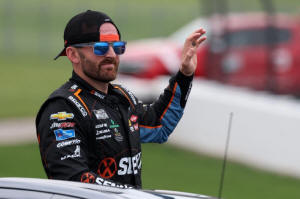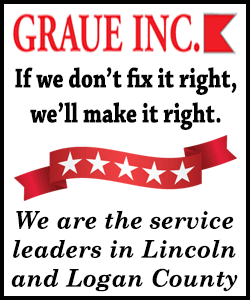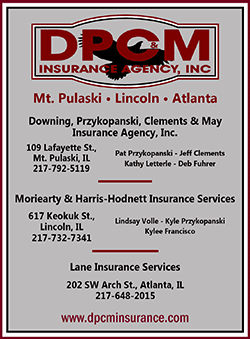Stubbs: NASCAR sets needed
precedent with Austin Dillon ruling
 Send a link to a friend
Send a link to a friend
 [August 15, 2024]
Austin Dillon may still get to wake up and stare at the
trophy he earned from the Cook Out 400, but that's about the only
positive he gained from the Sunday race. [August 15, 2024]
Austin Dillon may still get to wake up and stare at the
trophy he earned from the Cook Out 400, but that's about the only
positive he gained from the Sunday race.
On Wednesday, NASCAR announced that Dillon's victory at Richmond
Raceway will not count toward his eligibility for the 2024 NASCAR
Cup Series playoffs, moving the driver and his No. 3 team from 13th
in the playoff standings back down to 31st, nearly 200 points out of
a playoff berth.
With Michigan, Daytona and Darlington remaining on the
regular-season schedule, Dillon still has three opportunities to
earn his playoff spot back. Daytona is easily the most likely place
for Dillon come out on top again, but if he can't find his way back
into the postseason, his lament over the ending of the Richmond race
will forever loom large.
NASCAR's decision to make Dillon's victory not count toward playoff
eligibility may be one of the most important ruling the sanctioning
body has made since instituting the knockout-style format in 2014.
Drivers have resorted to desperation in regards to the playoffs
before -- see Ryan Newman's move on Kyle Larson at Phoenix in 2014,
or Kevin Harvick intentionally crashing the field at Talladega in
2015 -- but Dillon's move on Sunday trumped all prior incidents in
terms of severity.

Not only did Dillon not attempt to make the corner before spinning
Joey Logano in turn three, but he also turned down and hooked Denny
Hamlin coming to the line in a desperation move that only the
difference between making and missing the playoffs could have
spurred.
NASCAR has always flirted with the idea of "boys have at it" in an
attempt to both appeal to old-school fans while also loosely
defining the lines of what constitutes a penalty for overaggressive
moves. Since the beginning of auto racing -- and in reality, every
competition -- competitors have always sought advantages, whether
they be fair or unfair.
Dillon intentionally crashing both Logano and Hamlin wasn't a
trivial event equal to Smokey Yunick or Junior Johnson trying to
mess with a fuel line. It wasn't equal in severity to a driver
slightly jumping a restart or nudging a competitor up the track.
Dillon didn't just take the physicality and aggression of NASCAR to
the extreme, but abused the unwritten rules and undrawn lines that
weren't there, simply because NASCAR likely didn't think a driver
would ever be in such a desperate situation to warrant hooking a
competitor into the wall for a race win.
Of course, NASCAR can't be deemed an innocent victim: It's the
circuit's own "win-and-in" elimination style format that forced the
hand of Dillon, who sat 32nd in points entering the Sunday race.
Along with the chance to compete for the championship, a playoff
berth guarantees teams a bonus payout in the neighborhood of $2
million, which is a windfall in a sport that's more dependent on
sponsorship than any other.
[to top of second column] |

Jul 21, 2024; Indianapolis, Indiana, USA; NASCAR Cup Series driver
Austin Dillon (3) waves to the crowd before the Brickyard 400 at
Indianapolis Motor Speedway. Mandatory Credit: Mike Dinovo-USA TODAY
Sports/File Photo

If NASCAR had chosen to stay with the original
Chase format or never adopted a playoff format, Dillon would have
had little incentive to drive as hard as he did on the final lap.
Regardless of the points format at play, however, Dillon, who is in
his 11th of full-time Cup Series season, should understand that
wrecking competitors in an intentional manner is never a good idea,
even in a tense situation. He may wake up to the shine of the trophy
every morning, but what good is it if that trophy comes without a
playoff berth and at the expense of his team?
Along with Dillon's spot in the postseason being revoked, Dillon
lost 25 points and spotter Brandon Benesch for the next three Cup
Series races. Benesch's suspension was a result of Benesch yelling
for Dillon to wreck Hamlin as the two raced out of turn four, and
with radio evidence, there was no choice for NASCAR but to take
further action.
In this case, NASCAR set the correct precedent. With every one of
the Cup Series' 36 races affecting the playoffs, there can be no
room for any moves similar to what Dillon pulled at Richmond. In an
era of NASCAR where aggression is at an all-time high and young
drivers seem to have little respect for their competitors, the
penalty is a rare iron fist in the Bill France-less era of the
sport's leadership.
NASCAR shouldn't become the stock-car racing equivalent to Formula
1's officiating body, where any instance of contact results in
reprimand, but drawing the line between "boys have at it" and
overaggressive driving is a must.
Richard Childress Racing will, of course, appeal Dillon's penalty
before the playoffs begin on Sept. 8, but the organization will be
fighting a losing battle.
For today, at least, NASCAR can pat itself on its back.
--Samuel Stubbs, Field Level Media
[© 2024 Thomson Reuters. All rights
reserved.]
This material may not be
published, broadcast, rewritten or redistributed.
Thompson Reuters is solely
responsible for this content.

|